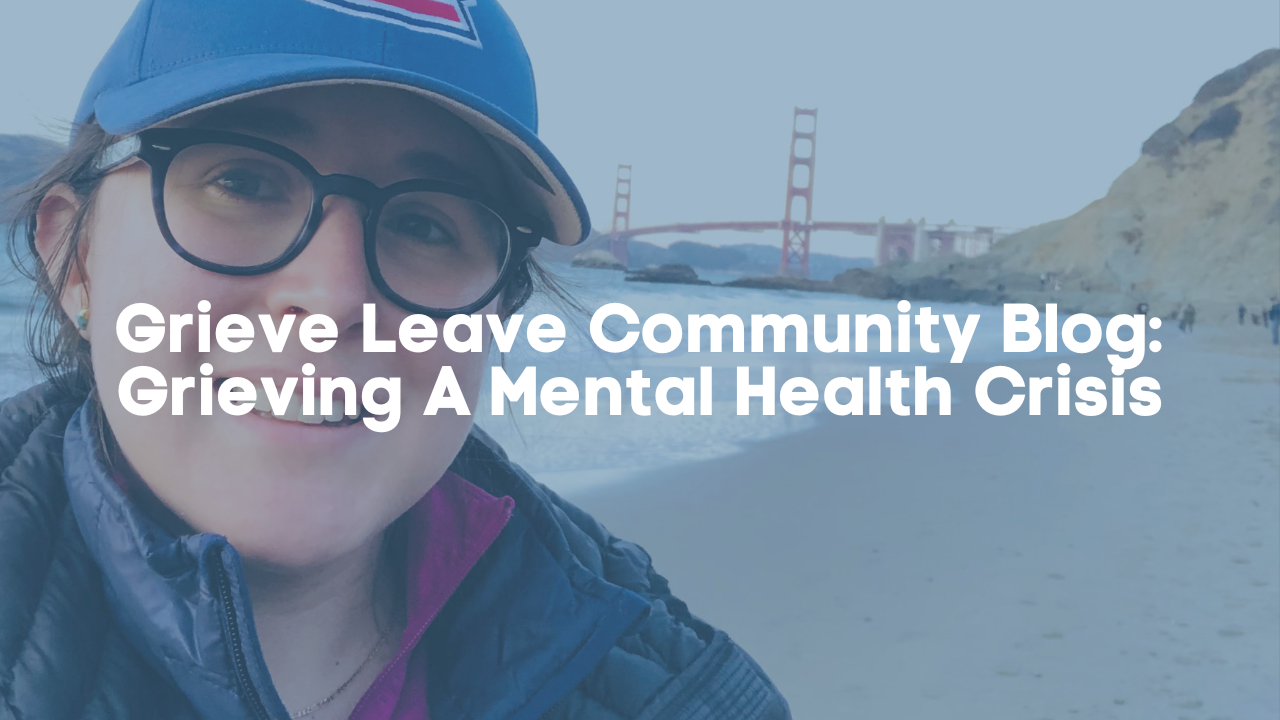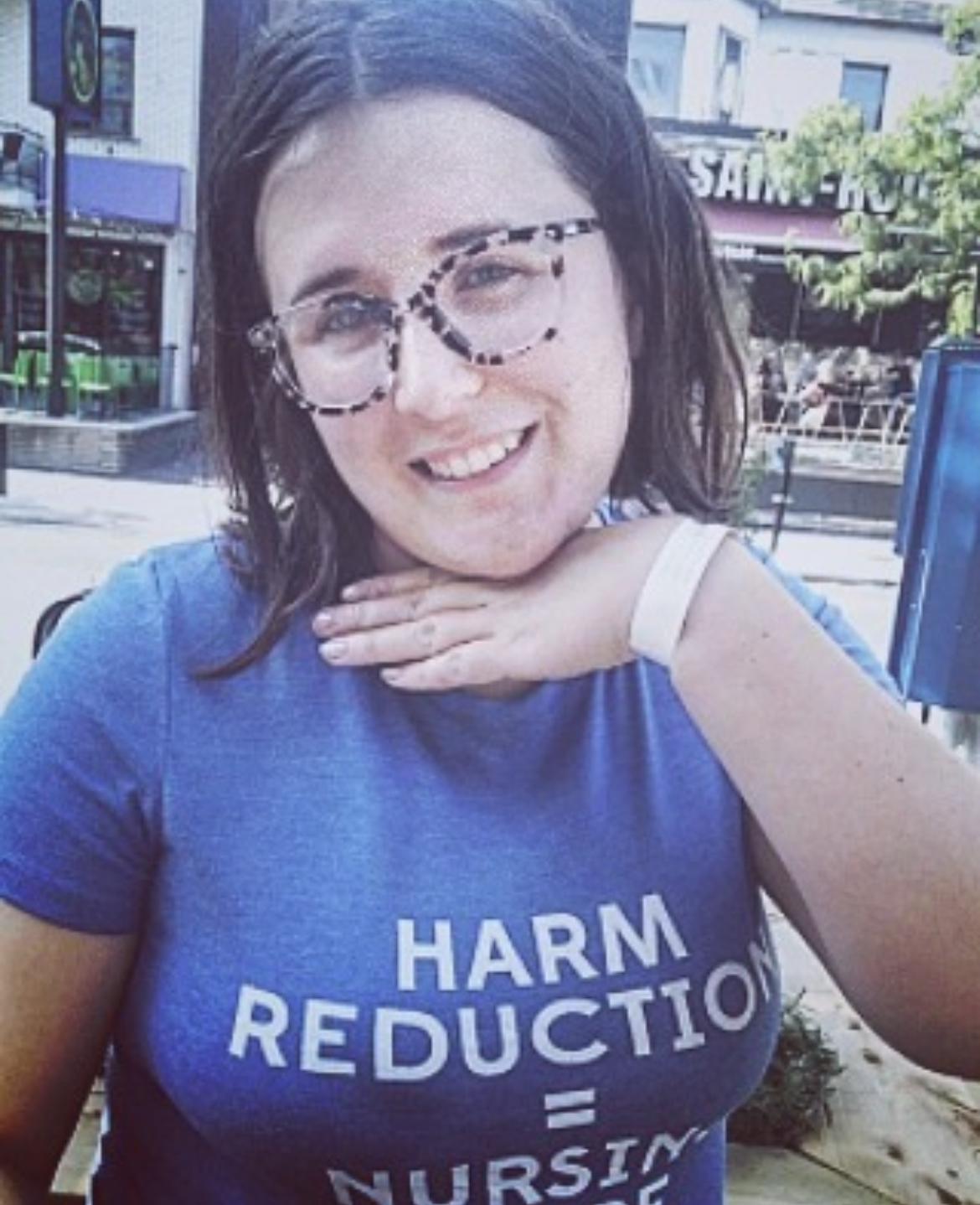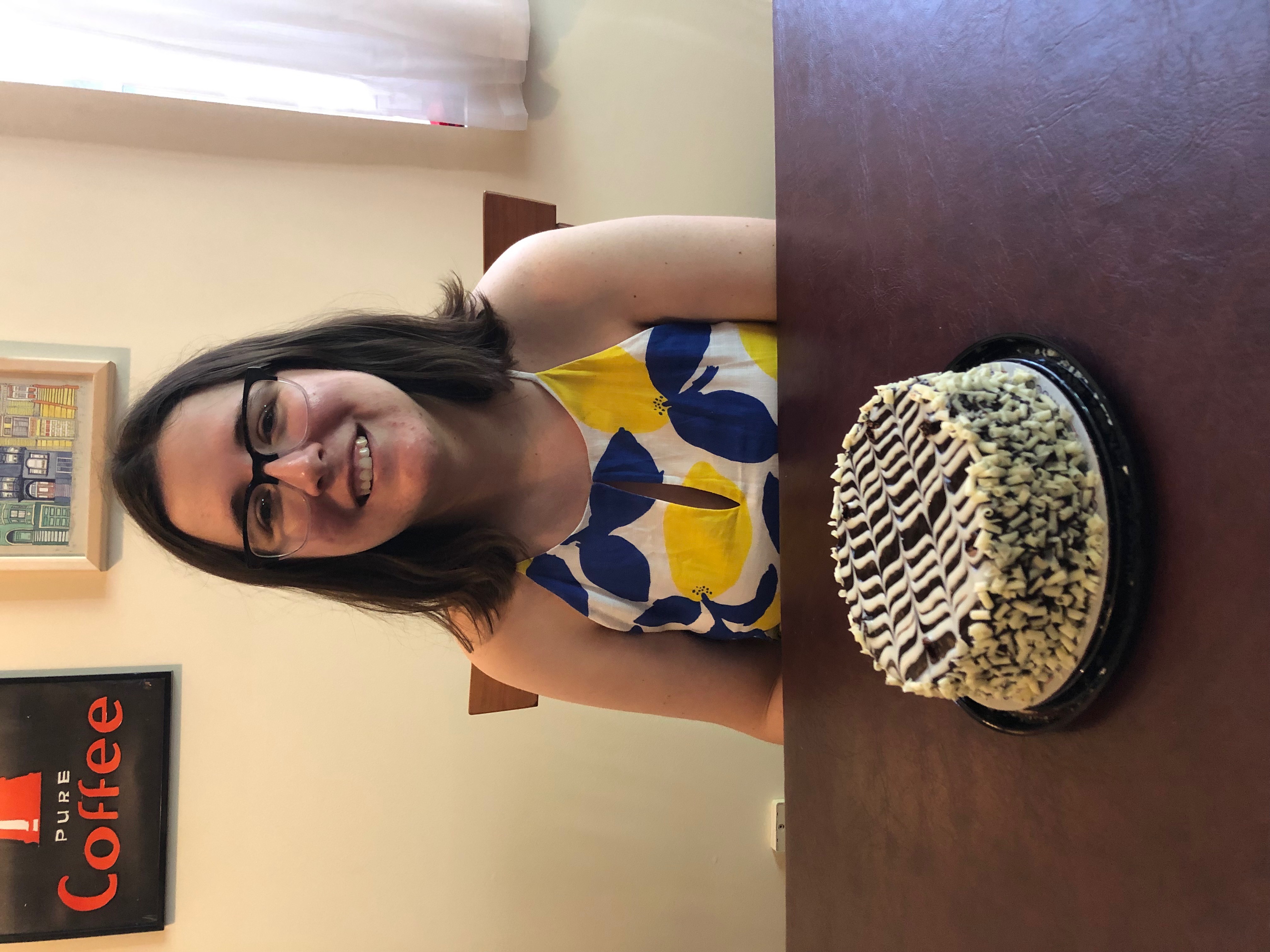Grieve Leave Community Blog: Grieving A Mental Health Crisis
Mar 23, 2025
By Emilie Hudson
-
Mental health crises are difficult to understand, much less to explain to someone else.
I started reflecting more deeply on the grief inherent to my mental health crises while, as part of my academic work for my PhD, I wrote and recently published a lived experience narrative about my stay in a psychiatric unit.
Grieving mental health challenges, whether due to a crisis, a new diagnosis, or because of the ways a condition impacts your life, is an inevitable part of the experience. Yet, it is rarely acknowledged. I searched for stories that might help me make sense of my losses, but I found few. I can only wonder about all of the unearthed grief living in the many, many people on this planet who experience mental health challenges and crises.
Many people use their own terms or metaphors to describe their crisis experiences: in the fog, a lightning bolt, spiralling out of control, under the weather. (Another millennial might call it a menty b.)
For me, thinking of my crisis as a storm destroying a picnic helps me make sense of the experience and the grief that followed, capturing the shock and disorientation of the sudden crisis, and the deep sense of loss. Grief, I’ve learned, is not just mourning what’s ruined, misshapen, or destroyed; it’s also about learning to live in the aftermath.
The storm
You could say that before my mental health crisis, most of my life was a field dotted with wildflowers, the blue sky stretched long and endless, the sun shining. I lay on a blanket, watching the occasional fluffy cloud roll by. Next to me lay everything I needed for a splendid picnic: a crusty baguette, creamy cheese, a glass of champagne, a stack of books: a feast symbolizing a splendid life. The food: my loving family and friends. The glass of champagne: a strong, long-lasting romantic relationship. The stack of books: my promising academic career.
I lived like this for many years, until one late summer day, the wind started to change. The sky, for so long a bright cyan, started darkening at the edges. I could continue to relax, I thought: the clouds would pass, perhaps there would be some sunshowers on the horizon, a brief disturbance.
Later that day, a storm rolled in, quickly and violently. The gusts of wind – crisis in my mental health – began to knock everything over, one thing after the other. Fat droplets fell, fast and hard, soaking my life beyond recognition. The baguette and cheese became an inedible, soggy mush; my relationships tested and strained. The champagne glass tipped, its liquid soaking into the ground until the bubbles fizzled into nothing; a love that faded until it dissolved completely. The pages of my books warped, ripped, and were carried away in the wind; my knowledge, ambition, and career slipping from my grasp.
The storm was long, and it was brutal. The rain kept falling, each drop another loss.
In its wake, I was left kneeling in the wreckage, shaking, cold, and wracked with grief.
 Caption: trying to look cute outside a café during an afternoon pass from the hospital.
Caption: trying to look cute outside a café during an afternoon pass from the hospital.
Taking stock of the wreckage, and learning to grieve
This hospitalization – the onset of the storm that upended my entire life – kicked off two lost years, wherein I cycled through crises. I was often too up or too down, never hitting stability until I found the right combination of medication, social support, self-esteem, and purpose to maintain my equilibrium.
The downpour washed away my identity.
The turbulence in my mental stability wasn’t just the wind that knocked over my picnic; it knocked over my sense of self. I lost the Emilie who could trust herself and others, who made decisions in her own best interest. I lost my ability to function in daily life, the ability to ‘adult’: keeping my house clean, stocking my fridge, managing my bills and finances. I lost my self-esteem and credibility in the eyes of others. I grieved the concept of Emilie that had melted into the ground.
The deluge required me to seek shelter.
I spent a considerable amount of my lost years at my parents’ house in San Francisco, where I was fortunate to have a refuge, a place to be cared for. There, I was housed and clothed and bathed. At my worst, my mom would sit me in the tub and wash my hair because I could not lift my arms. I was lucky because I was able to step away from my life to recover, but it also meant that I grieved a life I loved and was proud of. For a time, I lost my independence and my autonomy.
The rain gave my skin a new, strange smell.
I grieved the existence that had been thrust upon me harshly and unpleasantly.
Sometimes I was so restless that I felt that I could run out of my skin. I walked up and down the hills of the Presidio, flattening the soles of my sneakers. Those days my only indulgence was a mint mojito iced coffee from Philz, a treat I enjoyed before scaling the steep hills around my parents’ neighbourhood. My mom urged me to walk up the Lyon Steps every day, always pushing movement as a cure for what ailed me. Some days, I did it just to feel my heart thump. Other times, unable to be perceived, I would hide in the closet, praying that my heart was quiet enough so that my family would think I was out. I spent a lot of time numb, watching reruns of Corner Gas on repeat, trying to sleep, waking up from sleep, and trying to sleep again.
Was there still a future for me in the debris?
The grief also came from the many unanswered questions that replayed in my mind:
Can my broken brain handle grad school anymore?
Can I face my professors after what happened?
Can my classmates tell that I’m in trouble?
Have I destroyed my relationships with my family and friends?
Will they remember all of the embarrassing things that I said and did?
Why have I barely heard from most of them?
Will I ever be able to be in a romantic relationship again?
Will I ever get over the end of my last one?
Am I even loveable?
Will I be able to get out of the debt I’ve accrued?
Will I ever hold down a job again?
Will my life ever be normal?
Who am I, now?
Will it end?
Why?
 Caption: A picture from my 30th birthday. 30 is a milestone often marked by a big party. I was too terrified of living alone after my time in San Francisco to celebrate.
Caption: A picture from my 30th birthday. 30 is a milestone often marked by a big party. I was too terrified of living alone after my time in San Francisco to celebrate.
Getting through it, and what comes after
For many people, mental health crises bring layers of grief. There is the primary loss, the crisis itself, and how it strips you of your ability to function, to think clearly, to make decisions, to interact with others. It fractures your sense of self, your identity, your self-worth. Then there are all of the secondary losses, the wreckage left in the storm’s wake. For me, this meant grieving the loss of a romantic partner of seven years, a job I cared about, and certain friends. Other people’s losses may be different: grieving a body changed by medication, losing an apartment, the inability to take care of a pet. The fact that these losses must be grieved with a mind that may still be unbalanced, and at a time when life is already so disrupted, makes them all the more cruel.
Whatever form it takes, the grief experienced during and after a mental health crisis is real, and it must be acknowledged – not just by the person experiencing it but also by those around them, who may carry their own grief.
For me, the grief lingered, unspoken for many years. By making space for it, and by naming it, I was able to move forward, to rebuild a life that honours both what was lost and what remains possible.
 Caption: Walks around my parents’ neighbourhood have become a lot more enjoyable since weathering my storm.
Caption: Walks around my parents’ neighbourhood have become a lot more enjoyable since weathering my storm.
Moving forward after a crisis, and moving through the grief associated with it, is not one-size-fits-all– . What worked for me won’t necessarily work for someone else, and if I were to grieve another crisis, there is no guarantee that what helped before will work again. I tried things, and failed – it took me two years to get my footing, two stints in San Francisco, two trips away from my adult life. Here are some things I learned:
-
Confront the difficult questions: Making space for my grief meant honestly asking all of those questions and testing out the responses. Some I talked through with a therapist, but mostly I dealt with them on my own. I didn’t feel comfortable addressing many of them to family or friends, though perhaps being more open with them would have brought me comfort sooner. Some of those questions I had to confront head on: I went back to my grad school program and had to deal with the possibility that my classmates and professors may have questions or look at me differently. I spent time with family members even when it scared me. Some answers came with time: I know now that I am loveable, that the crisis did end, that I got out of debt. Some questions linger, still: who am I, why did it happen to me?
-
Be open to help: I was extremely lucky to have been able to step away from my life, to land in a safe space, to be able to recover and grieve. Not only was I cared for, but I had the privilege of detaching from my ‘normal’ life and really examine it in a comfortable and safe environment. Finding a mental healthcare team was exhausting (that’s a story for another day!), but once I found the right combination of treatment, support, and therapy, I was able to regain stability. That stability, like snowball, grew and grew until I was unquestionably stronger and more resilient than I was before.
-
Be open to others with similar experiences: I attended a support group for young people with affective disorders. I found this challenging. The group, held in downtown San Francisco, was full of young, high-achieving professionals working for big tech companies – people with impressive degrees who seemed to manage their lives and mental illness well, unlike me. I compared myself to them and doubted I could ever get to where they were. Still, I kept pushing, even going to social events where I felt like a bozo with literally nothing to say. Over time, I inched closer to identifying with others, and started feeling better about my situation. Now, in my work I am surrounded by people who are open about their mental health, and that has made me a lot more comfortable being open about mine.
-
Do activities that help you process your grief: For me, that meant pounding the pavement, sometimes barely able to get to the end of the block, other times walking so fast I looked like a tomato. Music helped – I made specific playlists that helped me regulate my emotions – but walking without headphones gave me the chance to isolate an idea or question and examine it from many angles. I also wrote, sometimes sappy letters to my ex, other times lists of products I would buy that I was convinced would make me into a more beautiful / more fashionable / more intellectual version of myself. However, there were many days where none of this was possible, when I could not get out of bed or brush my teeth. Over time I was able to recognize how important rest was, how I needed to move at my own pace to heal, and was able to be a bit less hard on myself when I was having a particularly bad day.
-
Wade through time: The common thread through all of these lessons is time. There are many common sayings, in the grief space and society at large, that claim that time is the ultimate healer. This was true for me: to move away from the wreckage of the storm, I had to move through time. Time dulled the most painful thoughts, and lessened the sting of embarrassment and painful encounters. It gave me the space to confront my questions and let answers unfold; cycle through different forms of help until I found a successful rhythm; crawl through months of painful social interactions until I no longer felt invisible; and write so much that I was left with nothing else to say. Every foot I put in front of the other while walking through the Presidio brought me closer to the version of myself that was further and further away from the apex of the crisis, from the hospitalization, from the heartbreak. Time healed me, and it gave me time to heal myself.
I am proud to say that today I am on a new blanket, in a different field, next to a new set of precious items. Having weathered the storm, I have chosen them even more carefully than before. And this time, I have brought my speckled Marimekko rain coat and bright orange rubber boots along with me.
Join the Grieve Leave movement
Share your info to join our Grieve Leave community. You don’t want to miss anything!


